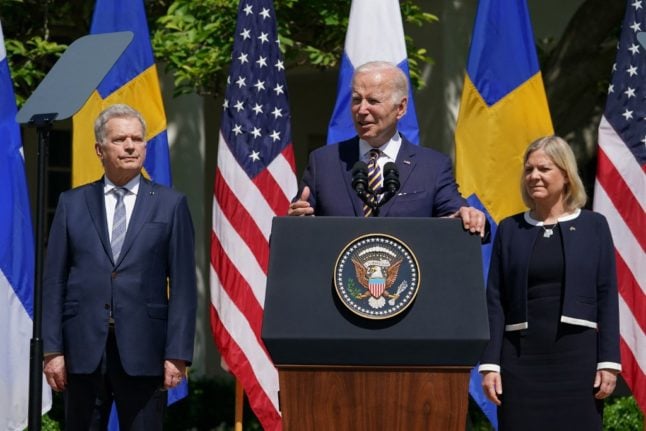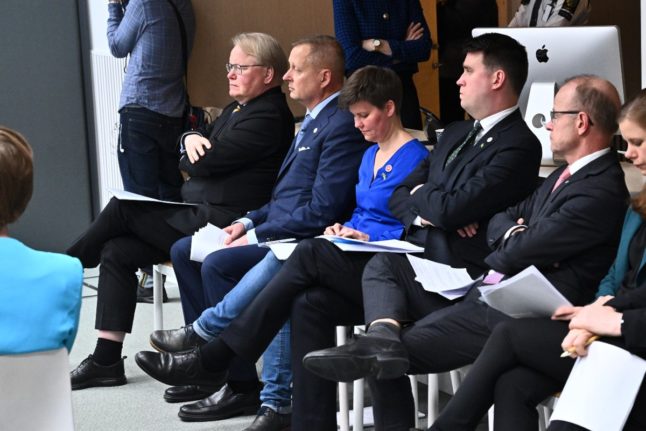The Senate voted 95 to 1 in favour of the two Nordic countries’ accession, making the United States the 23rd of the 30 Nato countries to formally endorse it so far, after Italy approved it earlier Wednesday and France on Tuesday. President Joe Biden hailed the Senate’s quick ratification process — the fastest since 1981.
“This historic vote sends an important signal of the sustained, bipartisan US commitment to Nato, and to ensuring our Alliance is prepared to meet the
challenges of today and tomorrow,” Biden said in a statement.
The sole opponent was Republican Josh Hawley, who agreed that the United States should focus on protecting its homeland, but that Washington should concentrate on the challenge from China rather than Europe.
One senator, Republican Rand Paul, voted “present” rather than endorsing or opposing the motion. Senate leader Chuck Schumer said it was a signal of Western unity after Moscow launched a war on Ukraine on February 24.
“This is important substantively and as a signal to Russia: they cannot intimidate America or Europe,” Schumer said. “Putin has tried to use his war in Ukraine to divide the West. Instead, today’s vote shows our alliance is stronger than ever.”
All 30 members of the North Atlantic Treaty Organisation must agree if Finland and Sweden, officially non-aligned but longtime adjunct partners of
the alliance, are admitted. According to a Nato list, seven member countries have yet to formally agree to the new double-entry: the Czech Republic, Greece, Hungary, Portugal, Slovakia, Spain and Turkey.
Only Turkey has raised a challenge, demanding certain concessions from Finland and Sweden to back their memberships.
Ankara has demanded the extradition of dozens of government opponents it labels “terrorists” from both countries in exchange for its support.
Turkey said on July 21 that a special committee would meet Finnish and Swedish officials in August to assess if the two nations are complying with
its conditions.



 Please whitelist us to continue reading.
Please whitelist us to continue reading.
Member comments